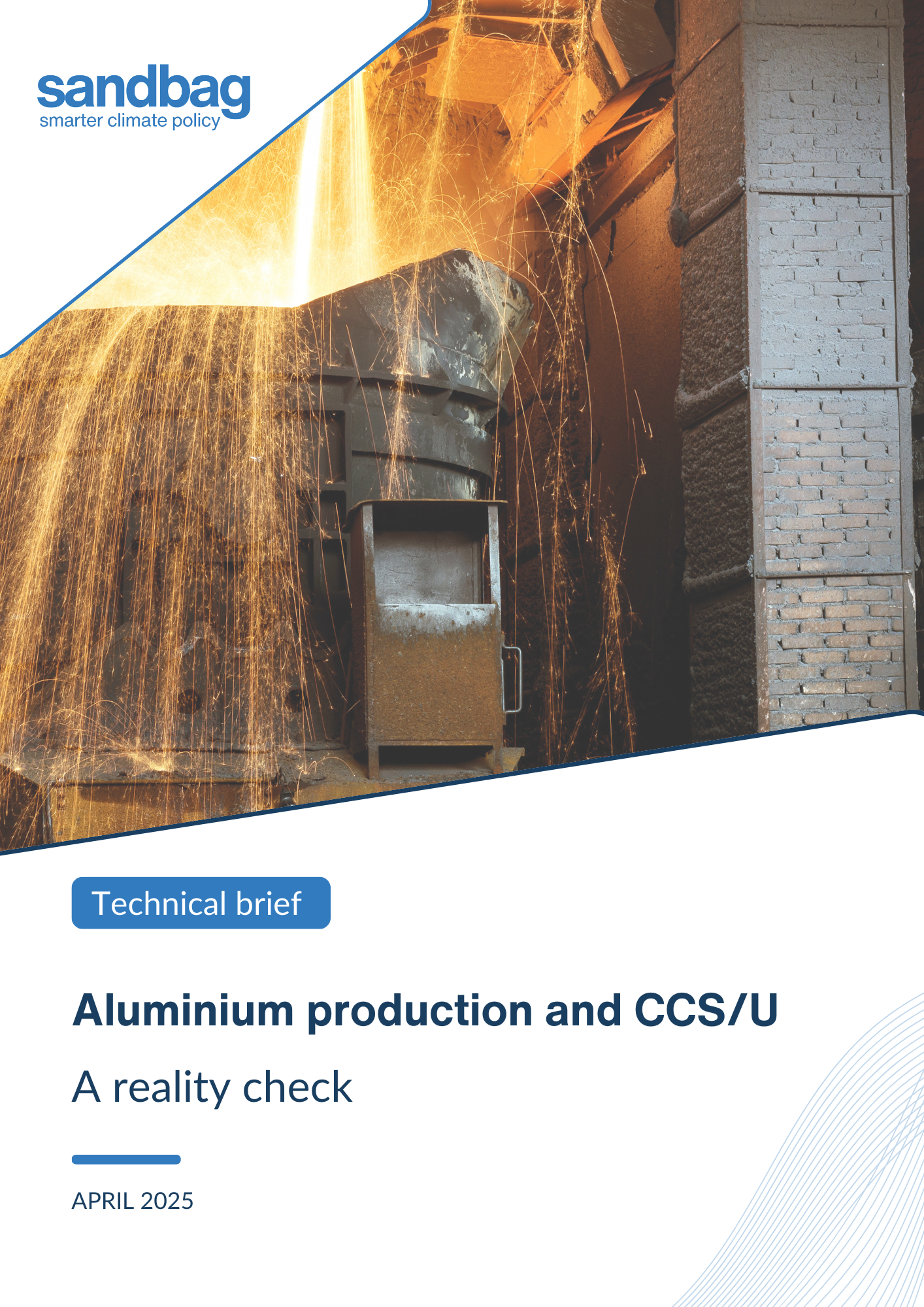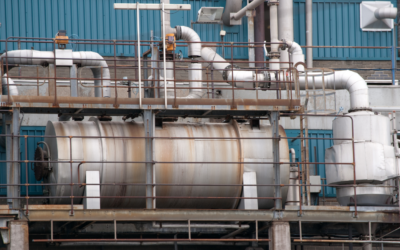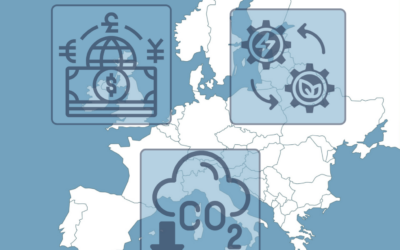The EU’s aluminium industry contributes around 2% of total industrial emissions, driven mainly by energy-intensive refining and smelting processes.
This policy brief explores why Carbon Capture and Utilisation (CCS/U) is unlikely to play a significant role in reducing these emissions — and what alternative pathways industry and policymakers should prioritise instead.

About the technical brief
Following on from our assessment of CCS/U in the iron and steel sector, we conduct another sectoral deep dive into the relevance of CCS/U, this time focusing on aluminium production.
We find that CCS/U is unlikely to play a significant role in decarbonising aluminium production. In both alumina refining and aluminium smelting, the nature and distribution of CO2 emissions present significant technical and economic barriers to widespread CCS/U deployment.
This technical brief highlights more practical and scalable pathways:
- Fuel switching & energy recovery is expected to slash alumina refinery emissions
- Inert anodes are a breakthrough technology to eliminate smelting emissions at the source
- Increasing circularity to reduce demand for primary aluminium and strengthen industrial resilience
- The analysis finds how Europe’s aluminium sector can cut emissions and stay globally competitive — without CCS/U.
Key findings
Alumina refinery emissions can be tackled through fuel switching.
Electrification and energy recovery can reduce refining emissions close to zero well before 2050.
Smelting emissions are hard to capture — and better options exist.
Inert anodes, now nearing commercial deployment, provide a long-term solution that eliminates process CO₂ emissions entirely.
Maximising circularity will be essential.
Secondary aluminium production uses just 5% of the energy of primary aluminium production, and must be maximised in Europe to reap economic as well as environmental benefits.
To deliver real emissions reductions in aluminium production, policy frameworks and investment should focus on:
- Maturing technologies for electrifying refinery processes
- Commercialising low carbon smelting technologies like inert anodes
- Maximising aluminium recycling within Europe
Read the full technical brief to learn more.
Photo by gyn9038 from GettyImages
Related publications
July 16th 2024
More on the Aluminium
Electrification or electrical decarbonisation? We need both!
We agree with the European Commission’s general diagnosis that increasing the share of electricity in overall energy consumption is necessary to achieve deep decarbonisation. However, it is not sufficient. If overall energy use increases, or if electricity generation does not decarbonise rapidly, then electrification may fail its decarbonisation role.
Heat up industry, not the climate!
The European Commission has set out proposed terms and conditions for its auction on electrified /renewable industrial heat under the Innovation Fund (IF). We support the IF’s acknowledgment that indirect emissions are linked to the timing of electricity consumption rather than the source of electricity used. However, although it claims an intention to limit electricity use at hours of high marginal emission intensity, we are concerned that the proposed terms might lead to the opposite and significantly limit the scheme’s climate benefits.
Extending the CBAM to indirect emissions
The European Commission is considering amending the Carbon Border Adjustment Mechanism (CBAM) to include indirect emissions of CO2 from the use of electricity in the manufacturing of CBAM-covered goods.



